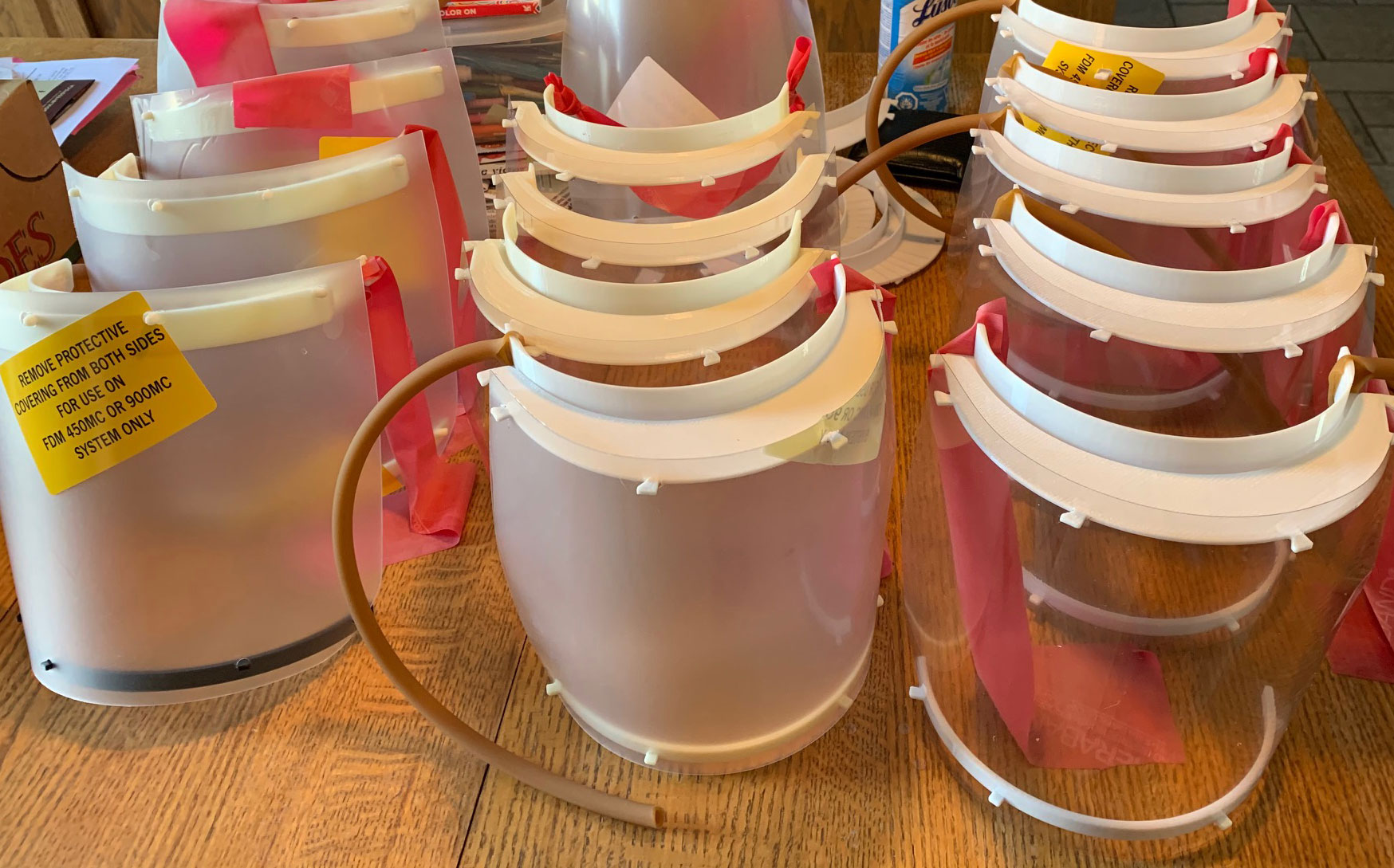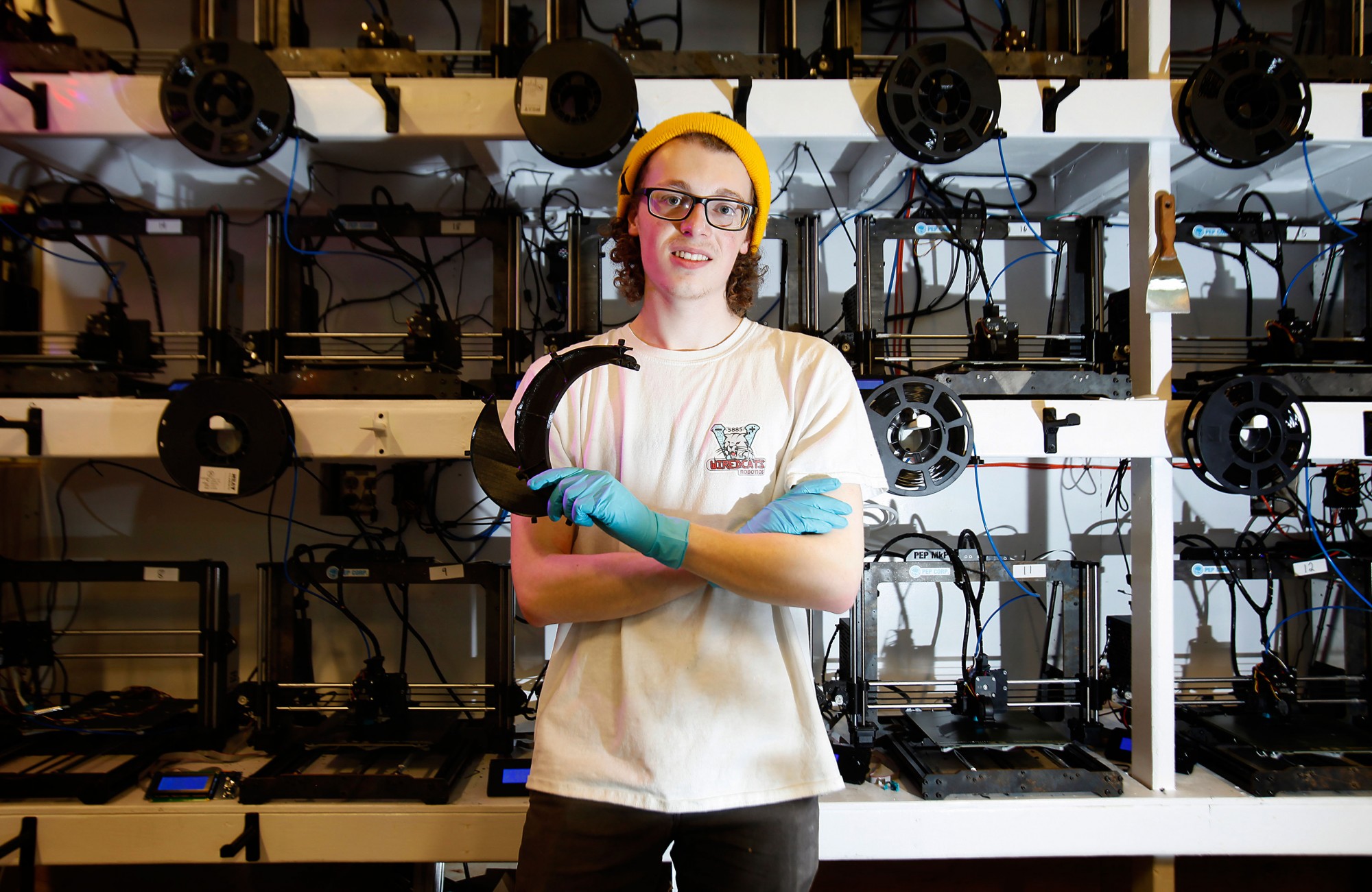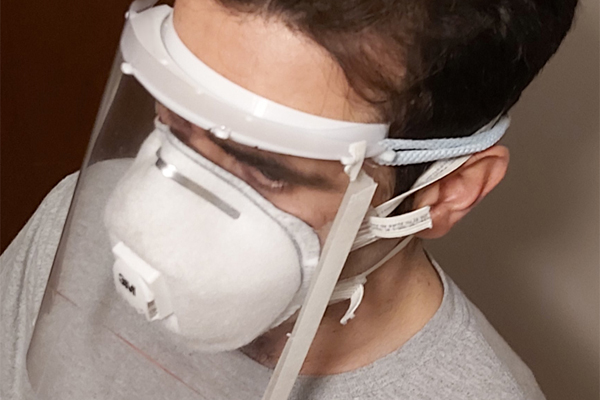Engineering team partners with local manufacturer to combat spread of COVID-19

A local manufacturer has teamed with a group of researchers at UWindsor’s Faculty of Engineering to help combat the spread of COVID-19.
Valiant TMS is assisting Dr. Jill Urbanic’s research team with the production of brackets for 3D-printed face shields. The global company headquartered in Windsor has provided material, testing, building and assembly support.
“We have no specific production targets. We are trying to meet requests and there have been several from a wide variety of front-line personnel,” Dr. Urbanic says. “This need is what is driving us forward.”
So far, shields have been delivered locally to three nursing departments at Windsor Regional Hospital, two nursing homes and an x-ray clinic and up Highway 401 to the intensive care unit at St. Joseph’s Hospital and St. Joseph's Family Medical and Dental Centre in Toronto.
The shields are designed to be lightweight and adjustable in size. Urbanic says the designs have been optimized to leverage the most effective manufacturing processes.
“The top cover and retainer can be laser cut or water jet cut. The materials should allow for reuse. We would like to pursue molding the flexi-band with local mold shops, if they are interested.”


